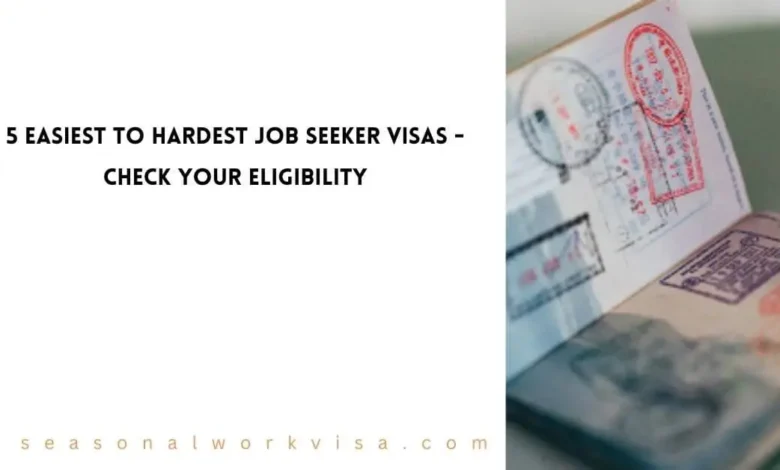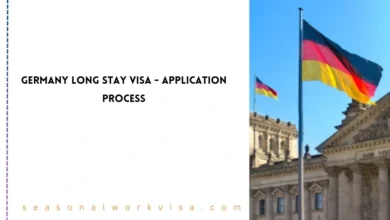5 Easiest to Hardest Job Seeker Visas – Check Your Eligibility

Have you ever wished you could drink espresso in Lisbon, move up the job ladder in Dubai, or fully experience Swedish culture? What do you know? It might not be as hard as you think!
Job hunter visas are like golden tickets; they let you into a foreign country so that you can find your dream job. But not every ticket is the same. When you enter a country, some put out the welcome mat, while others make you jump through hoops.
5 Easiest to Hardest Job Seeker Visas
Portugal Job Seeker VISA: Easiest
Portugal is like a cool, laid-back friend who’s always up for a new adventure. You’re pretty much in if you have some cash on hand and can mutter a few words in Portuguese.
- What you need: There should be proof that you have a place to stay, enough money to get by, no criminal record, and health insurance. Also, the entry fee is about €90.
- How long you can stay: Up to 180 days if you play your cards right.
- Where to apply: Visit
United Arab Emirates (UAE) Job Seeker VISA: Moderately Easy
Think of beautiful buildings, cutting-edge technology, and a job market that’s booming. This is not what the UAE wants, though. They want the best professionals and recent graduates from the best colleges.
- What you need: You must have a bachelor’s degree, show proof that you are not broke, and meet certain skill requirements. You must also have a degree from a top university. The cost is 310 AED, but hey, soon you could be having the high life!
- How long you can stay: 60, 90, or 120 days – it’s like a choose-your-own-adventure visa!
- Where to apply: Visit
Sweden Job Seeker VISA: Slightly Difficult
Picture this: friendly coffee shops, beautiful scenery, and a culture that values balancing work and life. That sounds good, right? You want to help Sweden’s business, but they want to know you’re serious.
- What you need: You should have a college degree, a good bank account, insurance, and a clear plan for how you will get a job or start your own business. It costs 1,000 Swedish kronor, but just think of those coffee breaks!
- How long you can stay: 6 months to make your mark.
- Where to apply: Visit
Austria Job Seeker VISA: Moderately Difficult
Austria could be the place for you if you like mountains, classical music, and to show that you’re the best. Visas aren’t being given out like free food, though. They use points to reward professionals with a lot of experience in certain areas.
- What you need: A good enough score (70 or more points) based on your age, schooling, work experience, language skills, and health insurance. You must also show proof of funds. It costs €150, but the fresh mountain air will be worth it!
- How long you can stay: 6 months to yodel your way into a job.
- Where to apply: Visit
Germany Job Seeker (Non-academic) VISA: Most Difficult
Germany is a leader in technology and business, but getting a work visa there is the hardest thing in the world. They want the best people who can speak the language and get things done right away.
- What you need: A degree in German or a language similar to it, at least five years of work, good German language skills, and enough money to live on. It costs €75 to apply, but think of all the pretzels you could buy!
- How long you can stay: 6 months to make your dreams come true.
- Where to apply: Visit
Conclusion
It’s not easy to get a job seeker visa, but it’s the key to employment possibilities in other countries. Do research on the places you want to visit, make sure you know what they need, and put together your application like a boss. You never know, your dream job might be on the other side of the world.
Frequently Asked Questions
What is a job seeker visa?
A job seeker visa allows individuals to enter a foreign country to search for employment. It typically permits a stay for a specified period during which you can apply for jobs.
How do the requirements for job seeker visas vary by country?
Needs are very different. For instance, Portugal wants proof of money and health insurance, while Germany wants a degree in a related area, a lot of work experience, and the ability to speak and write German well.




